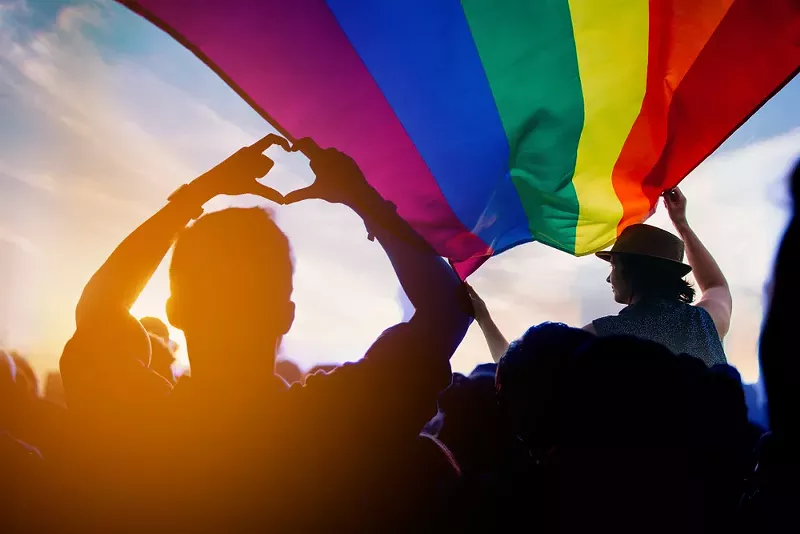The state’s highest court has a decision to make that could affect hundreds of thousands of Michiganders — does the Elliott-Larsen Civil Rights Act (ELCRA) ban discrimination on sexual orientation?
The Michigan Supreme Court held oral arguments Wednesday for the landmark Rouch World LLC et al v Michigan Department of Civil Rights et al case. Attorney General Dana Nessel, on behalf of the Michigan Department of Civil Rights (MDCR), argued that the state’s anti-discrimination act should be interpreted to include protections for sexual orientation because the term “sex” in the act’s language is so broad.
“We’re not asking that this court amend the law. We’re only asking that it be properly interpreted,” Nessel said.
For the first time in more than a decade, the court has a Democratic-nominated 4-3 majority.
In 2019, the Department of Civil Rights investigated businesses who reportedly turned LGBTQ people away and wouldn’t serve them based on their sexual orientation, claiming it infringed on their religious rights. Rouch World, an event center in Sturgis, refused to host a wedding for a lesbian couple and Uprooted Electrolysis, a hair removal salon in Marquette, denied service to a transgender woman.
Attorney David Kallman filed suit on behalf of the businesses arguing the MDCR did not have authority to investigate these claims.
Kallman has litigated several cases related to sexual orientation and gender identity protections, including suing the Williamston School District for adopting a nondiscrimination policy related to transgender students and suing Planet Fitness for allowing transgender women to use the women’s locker room.
Kallman said if the court ruled in favor of the state it would be “amending the law without going through the Legislature.”
In October 2021, a Court of Claims judge ruled that sexual orientation does not fall within the meaning of sex under Elliott-Larsen act because of a 1993 Court of Appeals ruling in Barbour v Department of Social Services. The plaintiff in the Barbour case claimed he was harassed by coworkers because of his sexual orientation, which led him to leave his job.
Nessel, who is the state’s first openly gay person to hold a top statewide office, said that because of a U.S. Supreme Court decision in Bostock v Clayton Co. that ruled discrimination based on sexual orientation is a form of sex discrimination, the state’s 1993 Court of Appeals ruling in Barbour v Department of Social Services was invalid.
The Bostock v Clayton Co. lawsuit was filed by Gerald Bostock, a gay man from Clayton County in Georgia, who was unrightfully fired from his job after his employer found out his sexual orientation.
Justice Richard Bernstein asked if the plaintiffs were “advocating to allow … that people can have the opportunity to have the ability to discriminate?”
But John Bursch, a former state solicitor general under former Attorney General Bill Schuette, denied that, saying that this was a matter of religious beliefs, not sexual orientation.
“There’s a line between discriminating against someone based on their status and who they are and not participating in a ceremony or event because it violates your religious beliefs,” Bursch said.
Kallman argued that this matter should be dealt with through legislation or a petition drive, not the Supreme Court. But similar initiatives have been attempted both in the Legislature and a petition drive, and none have been successful.
Originally published March 2, 2022 on Michigan Advance. It is shared here with permission.
Stay connected with Detroit Metro Times. Subscribe to our newsletters, and follow us on Google News, Apple News, Twitter, Facebook, Instagram, or Reddit.


